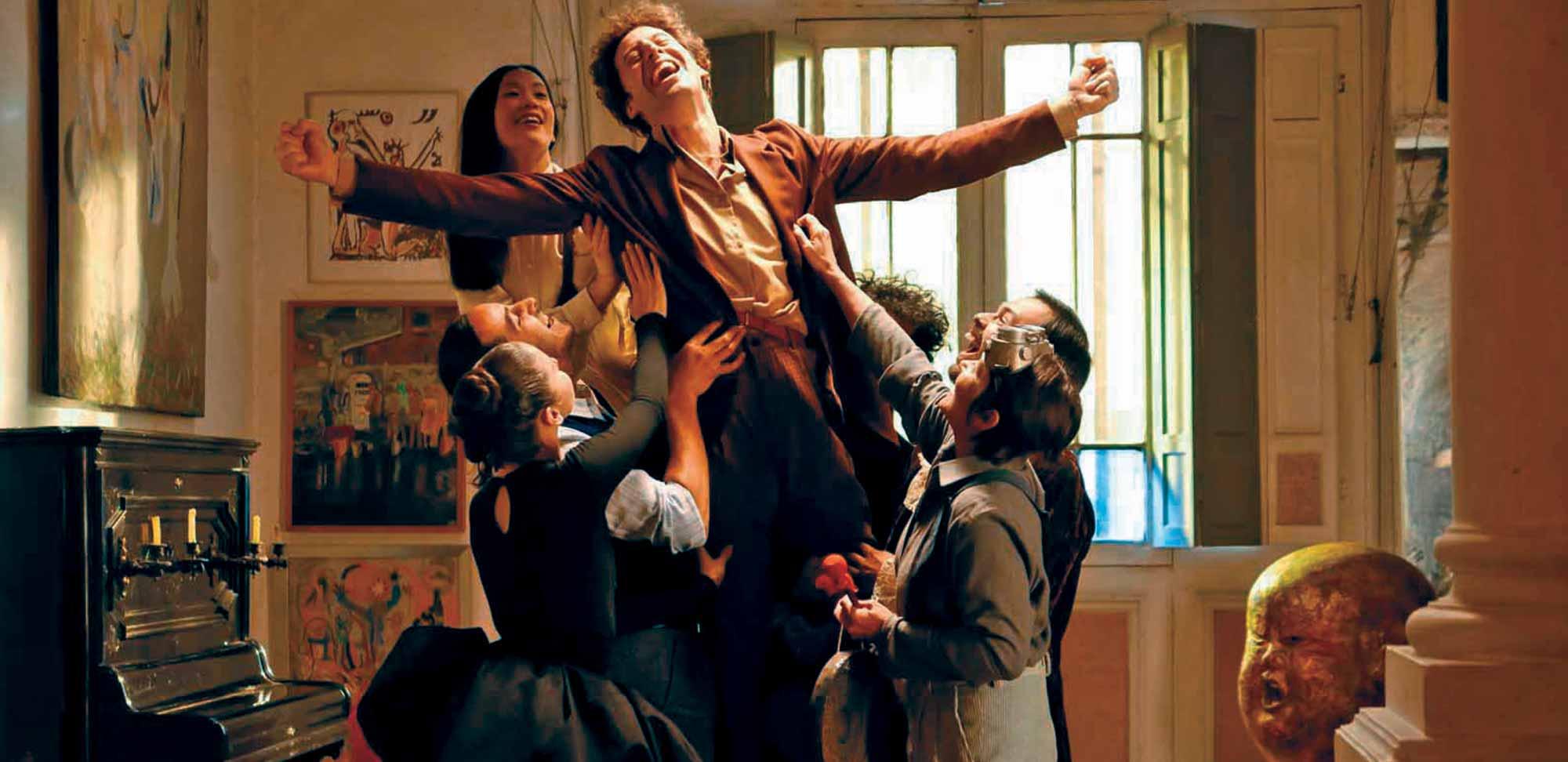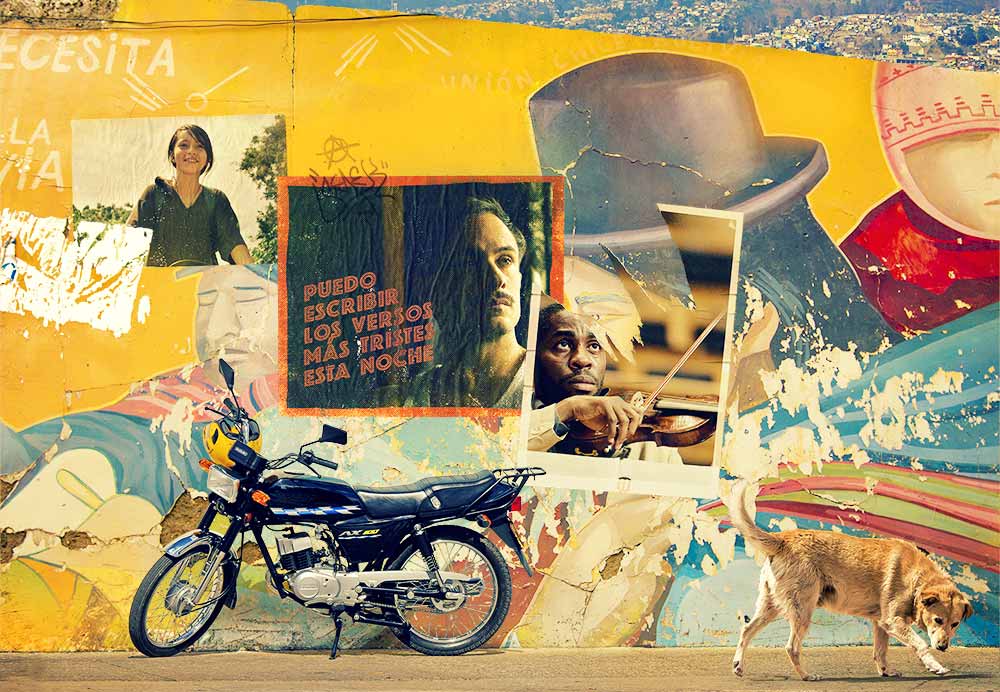In Santiago de Chile during the thrilling years of the 1940s and 1950s a twenty-year-old Alejandro Jodorowsky decides to become a poet against the will of his conservative Jewish family. He finds his way into the inner circle of the artistic and intellectual avant-garde of the time and meets Enrique Lihn, Stella Díaz, Nicanor Parra and many other promising but anonymous young writers who will become the masters of Latin America’s modern literature. Totally immersed in this world of poetic experimentation, they live together as few have dared to live before: sensually, authentically, freely, madly.
Endless Poetry, the second in Jodorowsky’s proposed cycle of five cinematic memoirs (the first was 2013’s The Dance of Reality), is a work of transporting charm and feeling. With an ingratiatingly wide-eyed and adventurous autobiographical hero (played by the filmmaker’s youngest son, Adan Jodorowsky) it is dotted with his trademark phantasmagorical conceits, which are like bursts of comic-book magic realism. Yet more than any previous Jodorowsky film (El Topo, Holy Mountain, Santa Sangre), it’s also a work of disciplined and touching emotional resonance.




